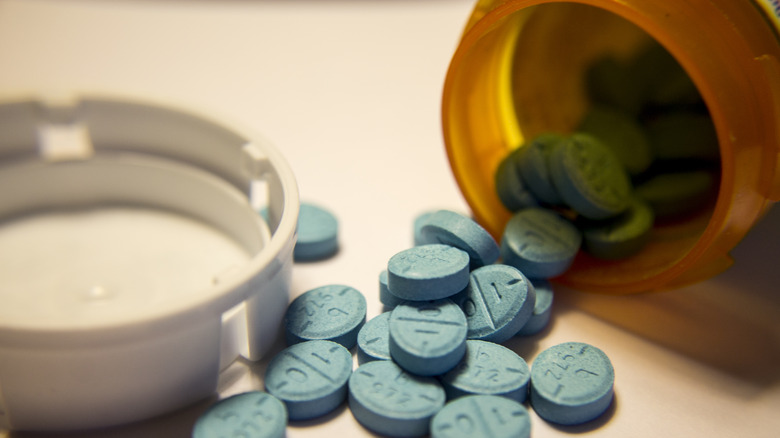How The Nationwide Adderall Shortage Is Impacting Americans' Productivity
The U.S. Food and Drug Administration (FDA) has officially confirmed a nationwide shortage of Adderall — a medication commonly used to treat attention deficit hyperactivity disorder (ADHD). In a statement on Wednesday, the FDA announced that there is an insufficient supply of Adderall in the U.S., noting that one of the largest manufacturers of the drug, Teva Pharmaceuticals, is currently experiencing ongoing manufacturing delays (via The New York Times).
Meanwhile, other drug manufacturers are struggling to keep up with the growing demand for Adderall and its generic alternatives now that more and more people are being diagnosed with ADHD. This has led to a surge in Adderall prescriptions over the years. "I can understand why there are shortages, because there's an increased demand of people who are seeking these medications," Dr. Goodman, an assistant professor of psychiatry at Johns Hopkins University School of Medicine and the director of the Adult Attention Deficit Disorder Center of Maryland, told the New York Times. As a result, the FDA recommends that ADHD patients taking Adderall work with physicians to find the best treatment option.
The Adderall shortage is having a negative impact on ADHD patients
Since Adderall is a controlled and highly regulated substance, however, it is difficult for pharmacists to suddenly start carrying a different brand of the drug (per NBC News). In addition, there are limits to the overall amount of Adderall prescriptions that pharmacies can fill at any given time. As a result, many ADHD patients who take Adderall are being turned away. In some cases, pharmacies are unable to refill a patient's prescription until they're completely out of pills, while others are unable to fill any prescriptions at all.
Dr. Gabrielle Shapiro, a psychiatrist and a professor at the Icahn School of Medicine at Mount Sina, told NBC News that the shortage has been "a mess" for those who rely on Adderall to manage their ADHD. In fact, children and teenagers have been especially hard hit by the shortage now that the school year is underway. "Parents are panicked. Their children are being sent home from school or told they cannot come back if they are not on their meds," Shapiro said. "I have high school students that are trying to take their SATs and do their applications for college, and they can't focus. They can't get them done."


